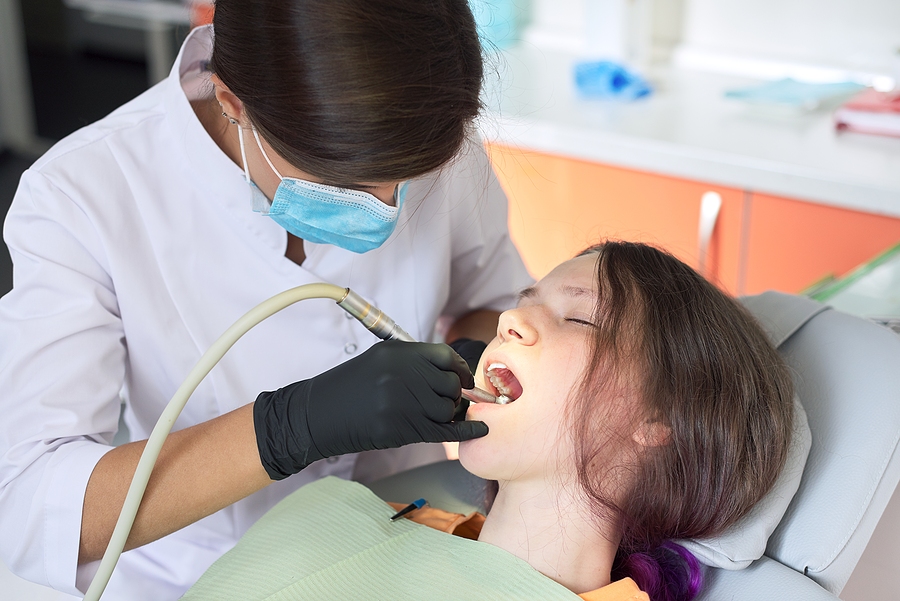Are you tired of waking up feeling exhausted and groggy? Do you find yourself struggling to stay awake during the day, no matter how much sleep you get at night? If so, you may be one of the millions of people worldwide suffering from sleep apnea. But fear not! In this comprehensive guide, we will delve into everything you need to know about sleep apnea – from its causes and symptoms to treatment options and lifestyle changes that can help improve your quality of sleep. So grab a cup of coffee (or maybe skip it if caffeine keeps you up at night!) and let's dive in!
What is Sleep Apnea?
Sleep apnea is a common sleep disorder characterized by pauses in breathing or shallow breaths during sleep. These interruptions can occur multiple times throughout the night, disrupting your natural sleep cycle and preventing you from getting the restful sleep your body needs to function properly.
There are three main types of sleep apnea: obstructive, central, and complex. Obstructive sleep apnea (OSA) is the most prevalent form and occurs when the muscles in the back of your throat fail to keep your airway open. Central sleep apnea (CSA) results from a failure of your brain to send proper signals to control breathing while you're asleep. Complex sleep apnea syndrome (CSAS), also known as treatment-emergent central sleep apnea, combines elements of both OSA and CSA.
The symptoms of sleep apnea can vary from person to person but often include loud snoring, excessive daytime fatigue, morning headaches, irritability, and difficulty concentrating. If left untreated, it can lead to more serious health issues such as high blood pressure, heart disease, stroke, and even depression.
If you suspect that you may have sleep apnea or are experiencing any related symptoms, it's important to consult with a healthcare professional who specializes in treating sleep disorders. They will be able to evaluate your symptoms through various diagnostic tests like polysomnography (a.k.a., a "sleep study"), which monitors brain activity, heart rate, and oxygen levels while you slumber peacefully.
Causes and Risk Factors
Sleep apnea can be caused by a variety of factors, and understanding these potential causes is essential for managing the condition. One common cause is excess weight or obesity. When you carry extra weight, it can lead to fat deposits in the throat area that obstruct the airway during sleep.
- Another risk factor for sleep apnea is age. As we get older, our muscles naturally lose tone and become more relaxed. This relaxation can contribute to blocked airways during sleep, leading to episodes of interrupted breathing.
- Having a family history of sleep apnea also increases your chances of developing the condition. Genetics play a role in determining our anatomy and how prone we are to certain health issues, including sleep disorders.
- Certain lifestyle choices can also increase your risk of developing sleep apnea. Smoking, excessive alcohol consumption, and sedative use all have been linked to an increased likelihood of experiencing breathing difficulties during sleep.
- Additionally, medical conditions such as nasal congestion or allergies can contribute to the development or worsening of sleep apnea symptoms.
By identifying these potential causes and risk factors associated with sleep apnea, individuals may be better equipped to make necessary changes in their lives that can help improve their overall quality of restful slumber.
Types of Sleep Apnea
Sleep apnea is a sleep disorder that can be classified into three main types: obstructive sleep apnea (OSA), central sleep apnea (CSA), and complex or mixed sleep apnea.
- Obstructive Sleep Apnea (OSA): This is the most common form of sleep apnea, accounting for about 84% of cases. OSA occurs when the muscles in the back of the throat fail to keep the airway open during sleep. The obstruction can range from partial blockage to complete closure, leading to disrupted breathing patterns and frequent awakenings throughout the night.
- Central Sleep Apnea (CSA): Unlike OSA, CSA is not caused by any physical blockage but rather by a failure of the brain to transmit proper signals to control breathing during sleep. This type of sleep apnea is less common than OSA and usually affects individuals with certain medical conditions such as heart failure or stroke.
- Complex or Mixed Sleep Apnea: As its name suggests, this type combines features of both OSA and CSA. It typically starts as one type and then progresses into a combination over time.
It's important not only to recognize which type you might have but also to seek professional diagnosis and treatment tailored specifically for your condition.
Symptoms and Diagnosis
Recognizing the symptoms of sleep apnea is crucial for early diagnosis and treatment. While each individual may experience different signs, common symptoms include loud snoring, gasping or choking during sleep, excessive daytime drowsiness, morning headaches, irritability, and difficulty concentrating.
If you suspect that you or a loved one might have sleep apnea, it's important to consult a healthcare professional for an accurate diagnosis. The doctor will typically start by reviewing your medical history and conducting a physical examination. They may also recommend certain tests to confirm the presence of sleep apnea.
One common diagnostic test is a polysomnography, which involves spending the night at a sleep center while being monitored for brain activity, eye movements, heart rate, breathing patterns, and oxygen levels. Another option is home sleep testing, where you can collect data from the comfort of your own bed using portable monitoring devices.
Once diagnosed with sleep apnea, it's essential to discuss treatment options with your healthcare provider in order to improve your quality of life and reduce potential health risks associated with untreated sleep apnea.
Treatment Options
When it comes to treating sleep apnea, there are several options available depending on the severity of the condition and individual needs. The goal of treatment is to improve breathing during sleep and ensure a restful night's rest.
- One common treatment option for mild to moderate cases of sleep apnea is lifestyle changes. These can include losing weight, avoiding alcohol and sedatives before bed, sleeping on your side instead of your back, and quitting smoking. These simple adjustments can have a big impact on reducing symptoms.
- For more severe cases, continuous positive airway pressure (CPAP) therapy may be recommended. This involves wearing a mask over the nose or mouth while sleeping, which delivers pressurized air to keep the airways open. While it may take some getting used to, CPAP can greatly alleviate symptoms and improve the quality of sleep.
- Another option is oral appliance therapy, where a specially fitted mouthpiece is worn during sleep to reposition the jaw and tongue in order to keep the airway open. This can be an effective alternative for those who cannot tolerate CPAP or prefer a less invasive treatment method.
- In certain cases, surgery may be necessary as a last resort when other treatments have failed or are not suitable. Surgical procedures can vary depending on factors such as anatomical abnormalities or structural issues in the throat that contribute to sleep apnea.
It's important to consult with a healthcare professional if you suspect you have sleep apnea in order to explore these different treatment options and find what works best for you. Remember that managing this condition effectively is crucial for both your overall health and quality of life.
Lifestyle Changes to Improve Sleep Apnea
When it comes to managing sleep apnea, making certain lifestyle changes can play a significant role in improving your condition. While these changes may not cure sleep apnea entirely, they can help alleviate symptoms and improve the quality of your sleep.
- One important change is maintaining a healthy weight. Excess weight can contribute to obstructive sleep apnea by placing extra pressure on the airways and causing them to collapse during sleep. By adopting a balanced diet and engaging in regular physical activity, you can gradually shed those excess pounds and potentially reduce the severity of your symptoms.
- Another lifestyle adjustment that can make a difference is quitting smoking. Smoking irritates the airways and increases inflammation, which can worsen sleep apnea symptoms. By kicking this harmful habit, you may experience improvements in both your overall lung health and your quality of sleep.
- In addition to these changes, establishing good sleeping habits is crucial for managing sleep apnea effectively. This includes sticking to consistent bedtimes and wake-up times, creating a calm bedtime routine, keeping electronics out of the bedroom, and ensuring that your sleeping environment promotes relaxation.
While lifestyle changes alone may not be enough to completely eliminate sleep apnea symptoms or replace medical treatments like continuous positive airway pressure (CPAP) therapy or oral appliances prescribed by healthcare professionals, they do have potential benefits when incorporated into an overall treatment plan.
Conclusion
Sleep apnea is a serious sleep disorder that affects millions of people worldwide. It can have significant impacts on both physical and mental health, leading to daytime fatigue, decreased cognitive function, and increased risk of other medical conditions such as high blood pressure and heart disease.
Understanding the causes, risk factors, and types of sleep apnea is crucial in seeking an accurate diagnosis. If you suspect you or a loved one may be experiencing symptoms of sleep apnea, it's important to consult with a healthcare professional who can guide you through the necessary steps for diagnosis.
Fortunately, there are several treatment options available for managing sleep apnea effectively. Continuous positive airway pressure (CPAP) therapy is often considered the gold standard treatment, but alternative treatments such as oral appliances or surgical interventions may also be recommended depending on individual circumstances.
In addition to medical treatments, making lifestyle changes can significantly improve symptoms and overall quality of life for those with sleep apnea. These include maintaining a healthy weight, avoiding alcohol and sedatives before bedtime, sleeping in certain positions that promote better airflow during sleep, practicing good sleep hygiene habits like sticking to regular bedtimes, and creating a relaxing environment conducive to restful sleep.
By understanding the importance of proper diagnosis and exploring appropriate treatment options along with adopting healthy lifestyle changes, individuals living with sleep apnea can greatly alleviate their symptoms and enjoy an improved quality of life.
If you suspect you or someone you know may be suffering from this condition, do not hesitate to seek help from a healthcare professional. Remember that better nights lead to brighter days!
More Blog Posts
Office Hours
MON9:00 am - 5:00 pm
TUE - WED7:00 am - 3:00 pm
THU7:00 am - 2:00 pm
FRI - SUNClosed









